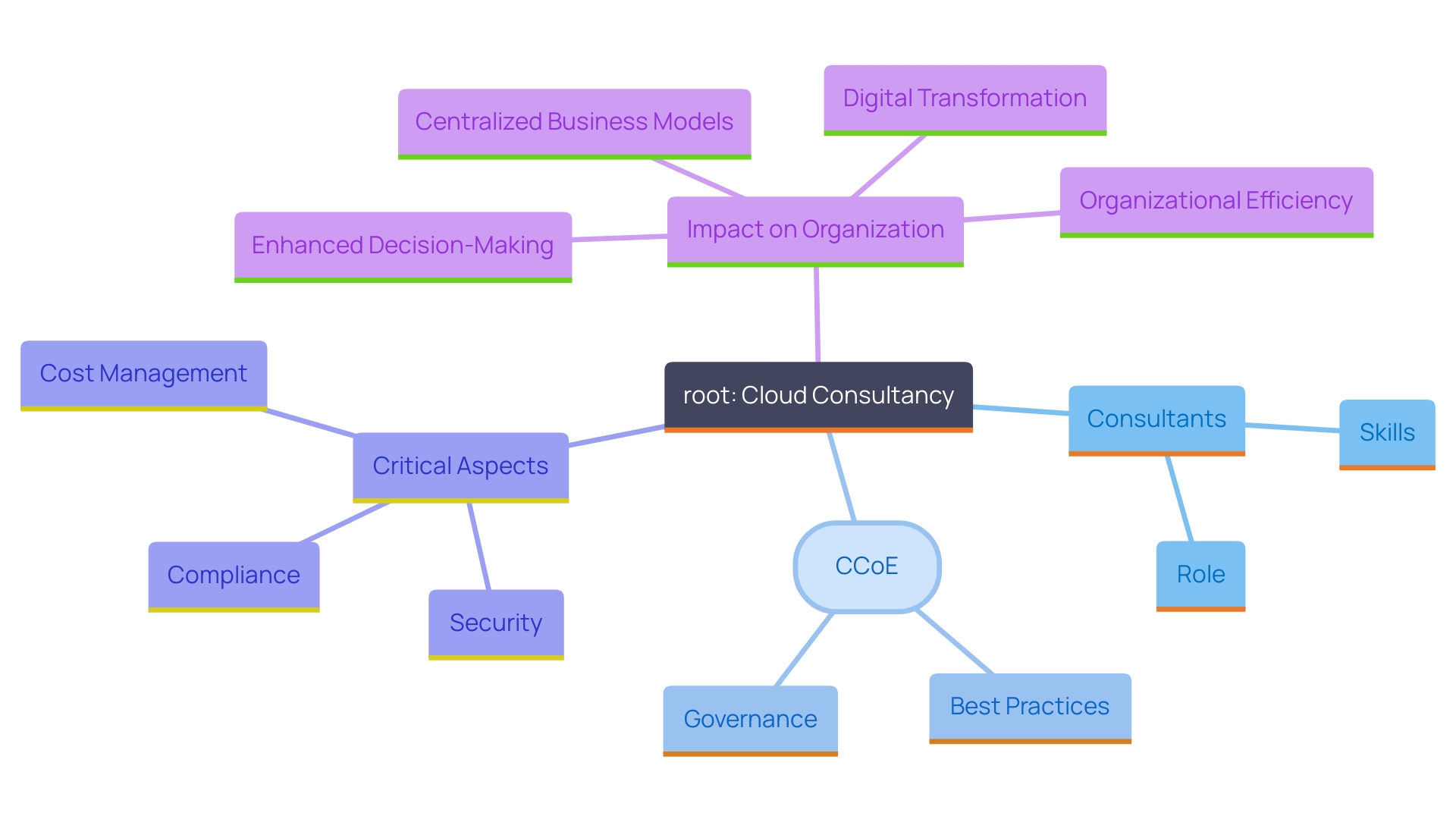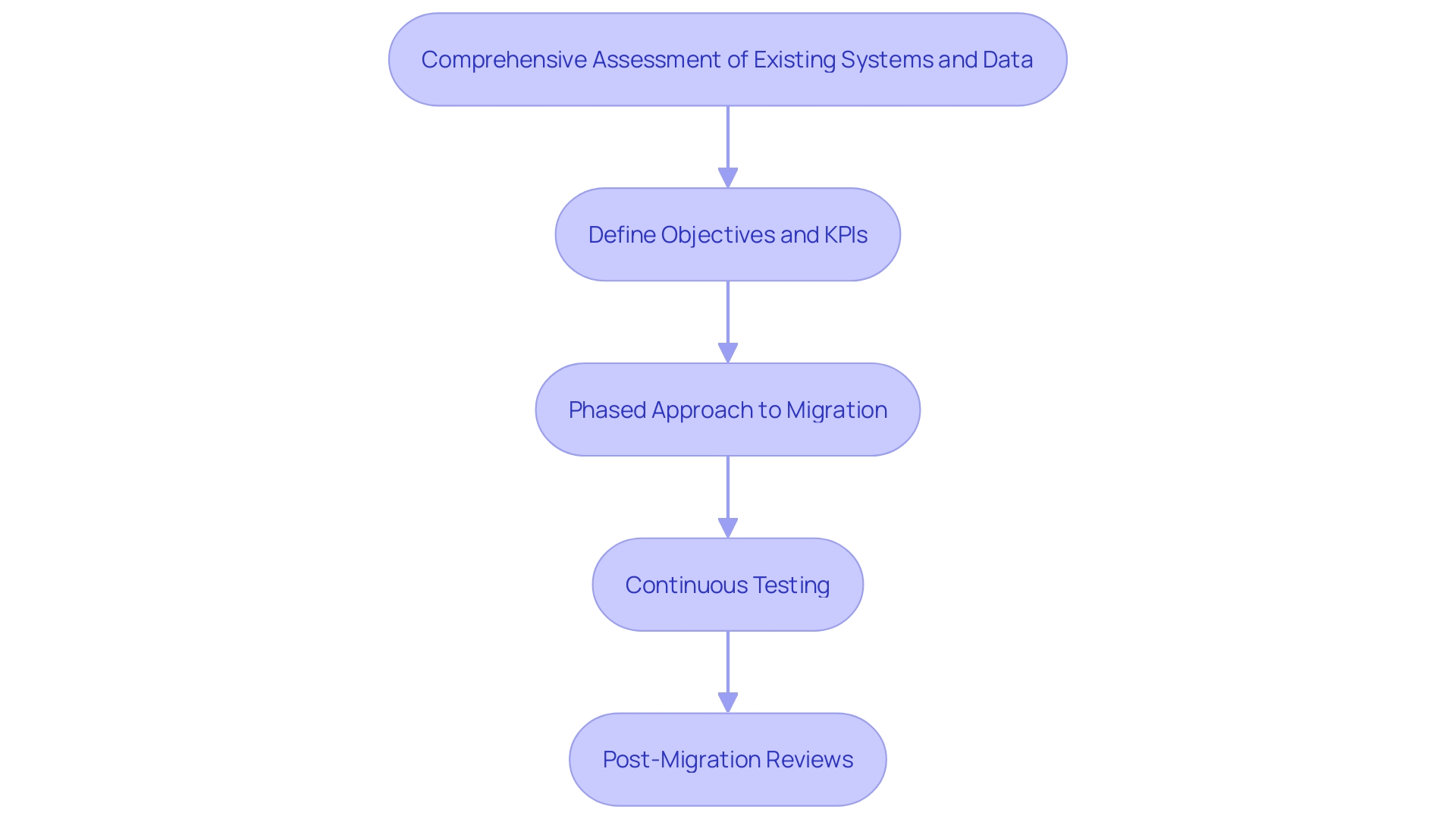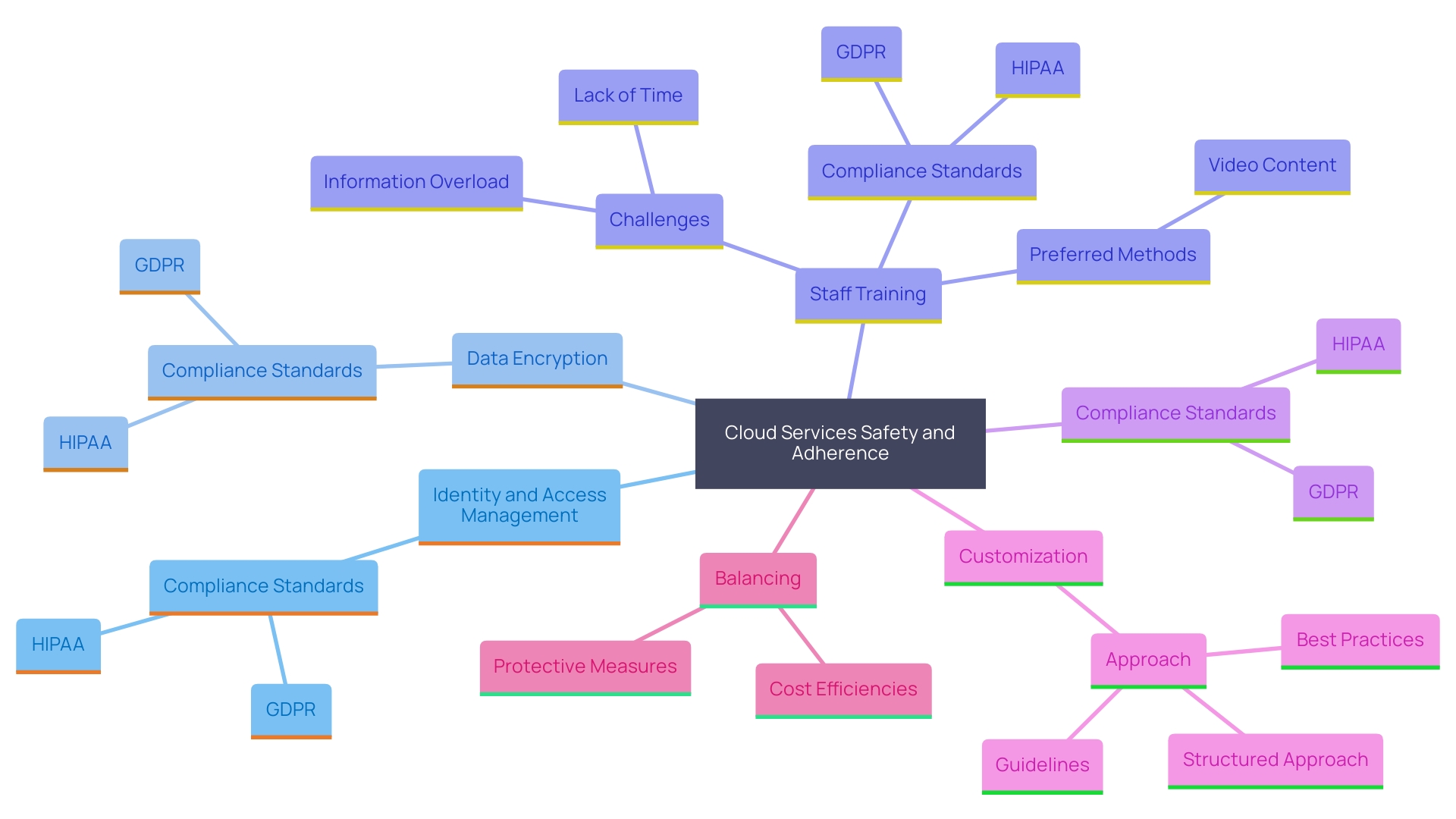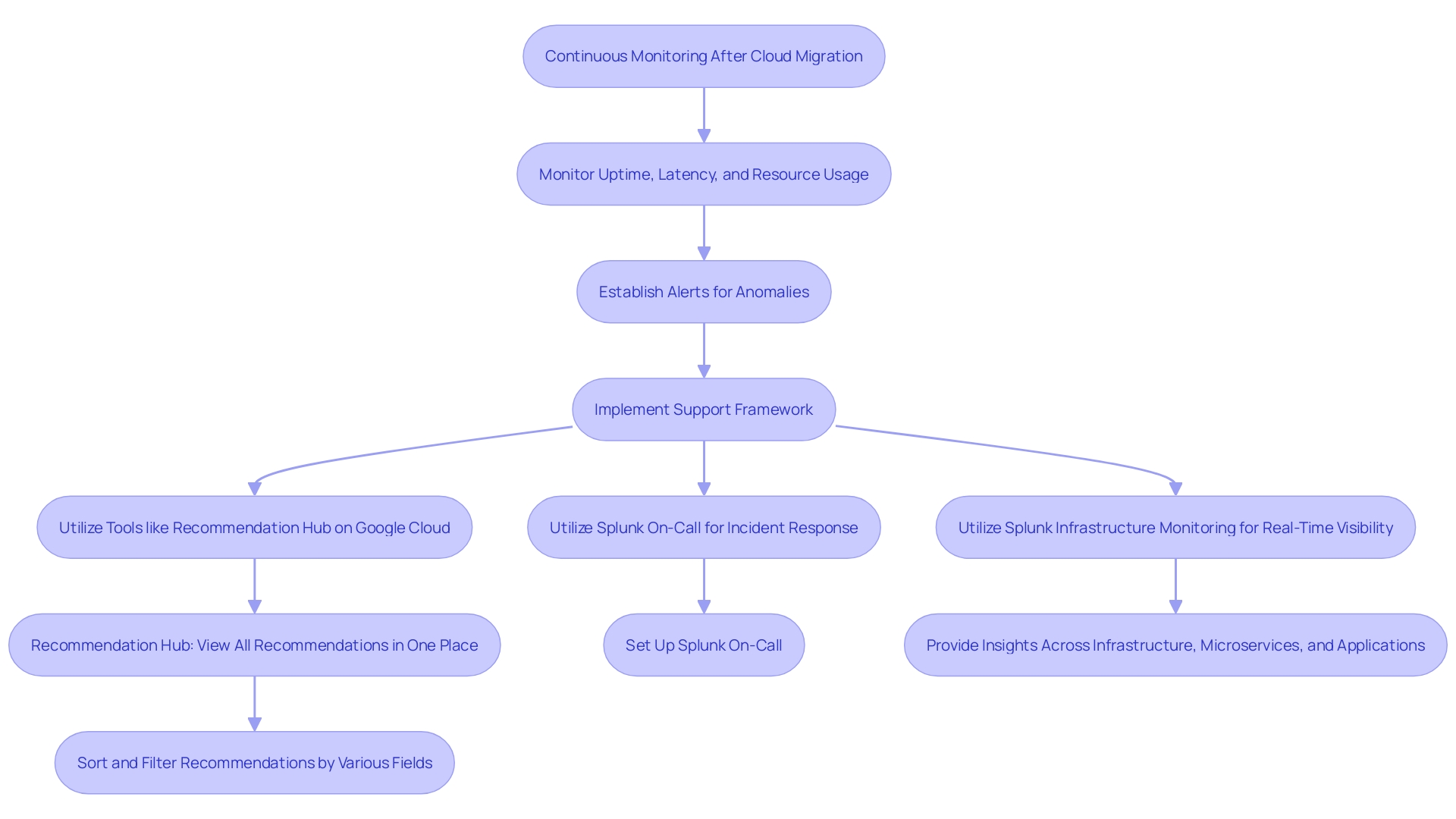Introduction
Harnessing the power of cloud technologies has become a cornerstone for modern enterprises striving for digital transformation. Among the various cloud platforms available, Google Cloud stands out, offering a comprehensive suite of tools and services designed to enhance operational efficiency and drive innovation. Central to maximizing these benefits is the role of a Google Cloud consultant.
These experts bring unparalleled expertise in Google Cloud products and services, crafting tailored solutions that align with an organization's strategic goals. From evaluating existing IT infrastructures to guiding seamless migrations and fostering cross-departmental collaboration, Google Cloud consultants play a vital role in ensuring that cloud initiatives are not only technically sound but also meet the broader business needs. This article delves into the multifaceted responsibilities of Google Cloud consultants, the myriad benefits of engaging their services, best practices for cloud migration, and the crucial aspects of security and compliance, ultimately illuminating how continuous monitoring and support can sustain peak performance in a cloud environment.
Understanding the Role of a Google Cloud Consultant
Consultants from the technology platform serve as essential partners for organizations looking to utilize the complete capabilities of cloud solutions. These specialists offer a vast amount of expertise in Google products and services, creating tailored solutions that fit perfectly with business goals. Their responsibilities include assessing existing IT infrastructures, recommending suitable cloud architectures, and steering businesses through the migration and implementation phases. By facilitating cross-departmental collaboration, these consultants ensure that cloud initiatives are technically robust and meet organizational needs effectively.
A well-structured Center of Excellence (CCoE) underscores their approach, focusing on the essential pillars of people, technology, and processes to foster a culture of innovation. This multidisciplinary team addresses critical aspects such as security, compliance, and cost management, providing a governance framework that drives efficiency and accelerates results.
For example, a firm with various subsidiaries, each operating its own ERP system, can greatly gain from centralizing its business model using an online platform. By consolidating data across supply chain, inventory, and finance into a single platform, organizations can establish a unified source of truth. This enhances decision-making capabilities, offering more consistency and control in reporting, and standardizing processes. Such strategic use of the platform not only streamlines operations but also offers a clearer understanding of the business impact of various decisions.
Moreover, the extensive and safe characteristics of the platform enable users worldwide to access its services, facilitating edge computing and private server configurations. It is a testament to GCP's versatility that it powers not only corporate infrastructures but also widely-used products like Gmail and YouTube. This extensive and innovative portfolio makes this platform an invaluable asset for businesses seeking to modernize their IT environments and drive digital transformation.

Key Benefits of Google Cloud Consulting
Engaging with Google Cloud consulting services offers numerous advantages that can drive substantial value for your company. These consultants bring a wealth of specialized knowledge, significantly accelerating project timelines and enhancing operational efficiency. With their insights into best practices and innovative solutions, consultants optimize resource utilization and reduce costs, ensuring that your technology investments yield the highest returns.
Additionally, their knowledge in adherence and protection assists entities in maneuvering through intricate regulatory environments, ensuring data integrity and confidentiality. This is particularly crucial in today's environment, where data security is of paramount importance.
Collaborating with cloud experts also improves business flexibility, allowing your company to react quickly to market shifts and new opportunities. By leveraging advanced cloud management practices and aligning technical and business objectives, your entity can achieve a competitive edge in the rapidly evolving digital marketplace.
Essentially, consultants from this tech platform not only deliver prompt operational advantages but also strategically prepare your entity for ongoing development and creativity.
Best Practices for Google Cloud Migration
Successfully transitioning to the platform requires meticulous planning and execution. It's critical to start with a comprehensive assessment of existing systems and data to identify the scope and scale of the migration. Defining clear objectives and Key Performance Indicators (KPIs) at the outset is crucial for tracking progress and ensuring that the migration meets business goals.
Adopting a phased approach, beginning with less critical workloads, can help mitigate risks and ensure a smoother transition. This method allows for gradual adjustments and troubleshooting as needed. Continuous testing throughout the migration process is essential for early detection of any issues, helping to maintain system integrity and performance.
Post-migration reviews are equally important to validate that systems are functioning optimally in the new cloud environment. In a landscape where 94% of organizations are already leveraging cloud technology, this strategic approach to migration can significantly enhance operational efficiency and innovation. Approximately 75% of enterprises are investing in cloud platforms, underscoring the importance of a well-structured migration strategy for staying competitive in today's digital economy.

Security and Compliance in Google Cloud
Safety and adherence are essential when utilizing the services of the tech giant. Establishing strong measures such as identity and access management, data encryption, and regular assessments is essential. The Cloud platform offers integrated protection features and compliance certifications that assist entities in following standards such as GDPR and HIPAA. According to recent insights from Google, they offer a range of customizable control packages to meet diverse regulatory, compliance, and sovereignty needs, allowing organizations to tailor their approach with minimal tradeoffs.
Moreover, consistent training and awareness initiatives for staff are essential in promoting a culture of safety and compliance. As Corey Quinn pointed out in his discussion about the future of cloud protection, the relationship between protective measures and cost efficiencies is intertwined; building efficiently can reduce costs and deter malicious individuals. The dedication to offering sophisticated protection frameworks guarantees that companies can efficiently handle safety measures and uphold a strong cloud defense stance.

Continuous Monitoring and Support
Post-migration, continuous monitoring is imperative for ensuring the optimal performance and security of cloud resources. Utilizing the powerful tracking tools available, entities can carefully monitor essential measures like uptime, latency, and resource usage. Establishing alerts for anomalies or performance issues is essential for swift remediation. Additionally, implementing a support framework with regular reviews and updates ensures alignment with evolving business objectives and technological advancements. For instance, the Recommendation Hub on Google Cloud now offers a centralized page for viewing all recommendations across multiple categories, allowing organizations to prioritize and address the most impactful ones efficiently.

Conclusion
Harnessing the expertise of Google Cloud consultants is essential for organizations aiming to fully realize the potential of cloud technologies. These specialists not only facilitate the migration process but also ensure that the adopted solutions align with business objectives. By assessing existing infrastructures and implementing tailored strategies, they help businesses achieve operational efficiency and drive innovation.
The establishment of a Cloud Center of Excellence (CCoE) further supports these efforts, fostering a culture that prioritizes security, compliance, and cost management.
The advantages of engaging Google Cloud consulting services extend beyond immediate operational benefits. Organizations can expect accelerated project timelines, optimized resource utilization, and enhanced compliance with regulatory requirements. These factors collectively position businesses to remain agile, respond to market dynamics, and sustain growth in a competitive landscape.
The strategic insights offered by these consultants are invaluable in navigating the complexities of cloud technologies.
A successful migration to Google Cloud requires careful planning, execution, and ongoing support. By following best practices—such as conducting thorough assessments, defining clear objectives, and implementing continuous monitoring—organizations can ensure a smooth transition. The emphasis on security and compliance throughout the process is crucial, as it safeguards data integrity and enhances organizational resilience.
In conclusion, the role of Google Cloud consultants is multifaceted, encompassing everything from strategic planning to continuous support. Their expertise is a critical asset for businesses seeking to modernize their IT environments and drive digital transformation. By leveraging their knowledge, organizations can not only optimize their cloud initiatives but also position themselves for long-term success in an increasingly digital world.




